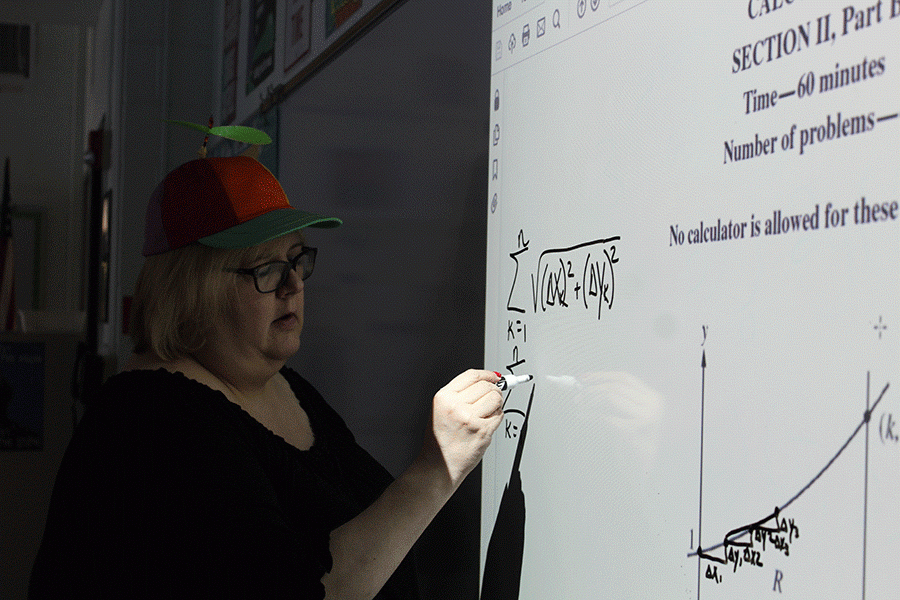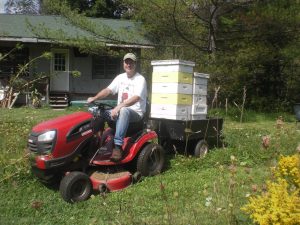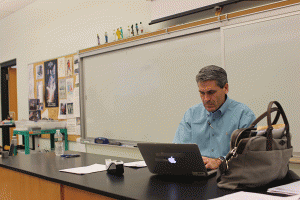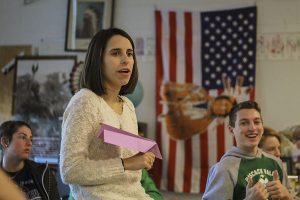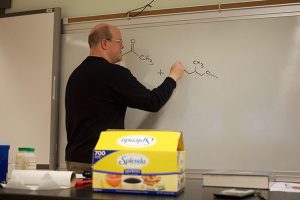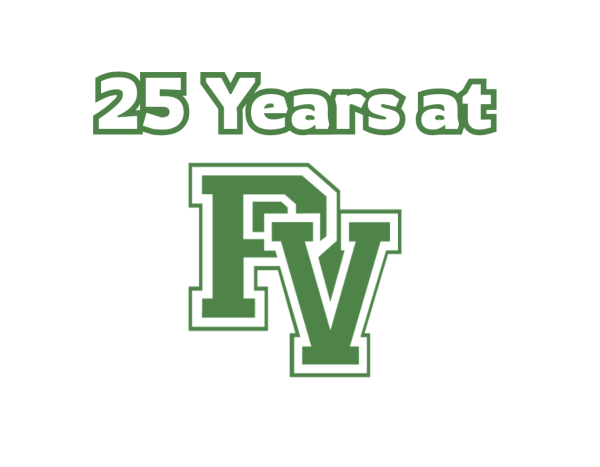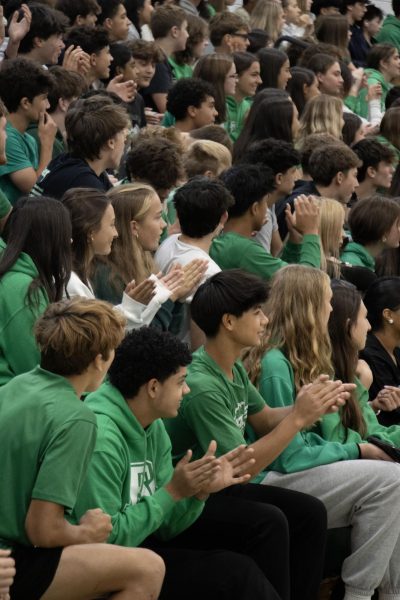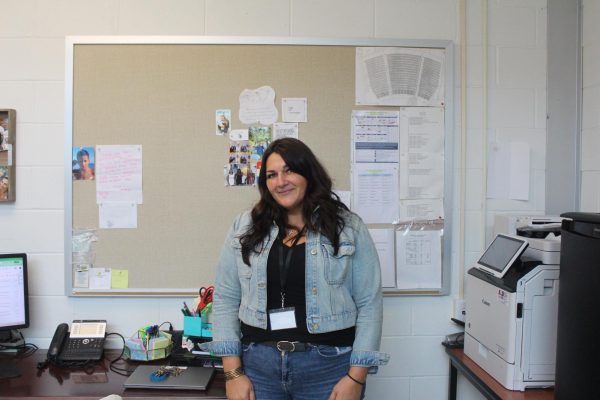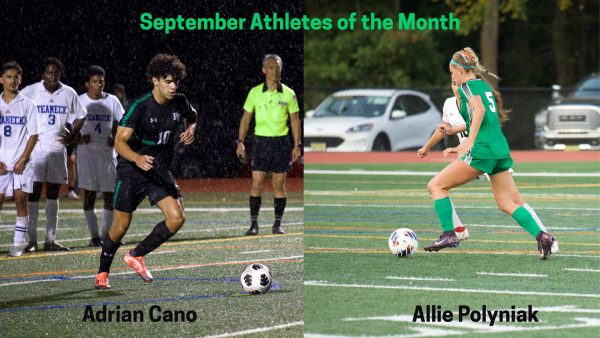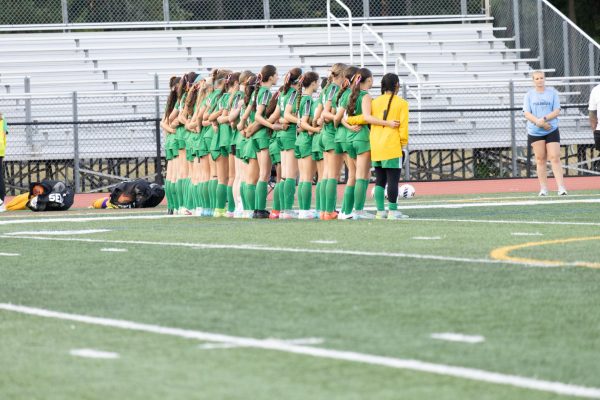The path to math
Pascack Valley math teacher uses engineering background to aid in her teaching
PV math teacher Ms. Maria Hinrichsen was an engineer before becoming a teacher.
(Editor’s Note: This is the fifth in a multi-part series examining interesting stories about PV teachers from outside of the classroom. Whether it is an unusual hobby, a prior job, or a specific interest, PV teachers have much to tell. Apparently, teachers have lives outside Pascack Valley. Who Knew!)
As Ms. Maria Hinrichsen stands up in front of the room teaching students about quadrilaterals, she thinks back on the time where her parents and teacher guided her towards the career of engineering. She remembers sitting in her office and tweaking models unhappily. Now as she teaches math, a subject she loves, Hinrichsen does it with a smile.
Before becoming a teacher, Hinrichsen found a well-paying job as an employee in a heat transfer division of an oil company. She got the job through an interview during her time as an engineering student at Stevens Institute of Technology. This company awarded Hinrichsen with a scholarship to help with her undergraduate studies.
There, she analyzed units for performance or redesign and the improvements needed for each. Hinrichsen also did a lot of consulting on projects in the oil company and around the world.
Although it was not her original plan, Hinrichsen enjoyed being an engineer for quite some time. She especially loved how challenging it was, the thinking, tweaking and solving problems, as well as the unsolvable part of the job.
“I loved running computer modules and tweaking and changing things to see what would make something work and not work and how you could improve it or not improve it,” Hinrichsen said.
Two years into Hinrichsen’s career, she realized that she was unhappy despite the aspects of her work she enjoyed and that her happiness was more important than her large paycheck.
“You have to do what you’re passionate about,” Hinrichsen said. “Did I come to my second career a little later? Yes, but I think when considering what you want to do, think about being happy– not just dollar signs.”
Hinrichsen had always wanted to teach so she begged her parents to let her go back to school. Once her parents saw how unhappy she was, they agreed to send her to get a teaching certification at Montclair University. When she finally started teaching, her parents could see she was happy and that she had made a good decision.
At the start of her career in education, Hinrichsen got a job easily after student teaching at Pascack Hills. She wound up in the district and became very happy with the kids and the job.
Hinrichsen grew up in Ringwood, New Jersey and attended Lakeland Regional High School. When she started to think about her career choice, teaching stuck out to her. Though when she told her parents and teachers about her passion, they refused and pushed her to take on a more ‘practical’ major.
“I did not want to be an engineer,” Hinrichsen said. “I wanted to be a math teacher and my parents and my own teachers said that it was a waste of my brain, that I would be wasted as a teacher, and that I should pursue a field in science, engineering, or mathematics.”
Hinrichsen decided to study at Stevens Institute of Technology in Hoboken, New Jersey and majored in mechanical engineering with a concentration in energy systems.
“Stevens had an excellent engineering program,” she said. “I liked the school’s location and size. Additionally, it was almost a free education for me in terms of the scholarship money I had from the school, from New Jersey for staying in-state for college, and from other organizations. Put those three things together – how could you pass it up?”
Once she decided to study engineering, Hinrichsen’s first choice was to become a chemical engineer. However, she quickly changed to mechanical when she realized her body could not handle the fumes produced by the chemicals.
“Every time I went into the chemical engineering building, I got violently ill from the odors,” Hinrichsen said. “It was just safer to go into [mechanical engineering].”
During her college years, Hinrichsen had many challenges with her intensive engineering workload. She had classes for between 21 and 24 hours a week, while average college students usually are in class for about 15 hours a week. Despite the amount of work, she enjoyed it.
“An engineering education makes you think about how to think and makes you look at possibilities you never thought of before,” she said.
Hinrichsen said that engineering was still a huge help in her career. When she is teaching, she can help students and herself by relating to the aspects she learned while in the field of engineering.
Hinrichsen does not have any regrets as engineering was a great challenge and the education itself was helpful as it taught her how to think.
However, she is glad that she now has a career that fulfills her.
“I may not want to come to school on a rainy day, but I love my job,” she said. “I have good colleagues. Students have been great to me. It has been a good 19 years.”


